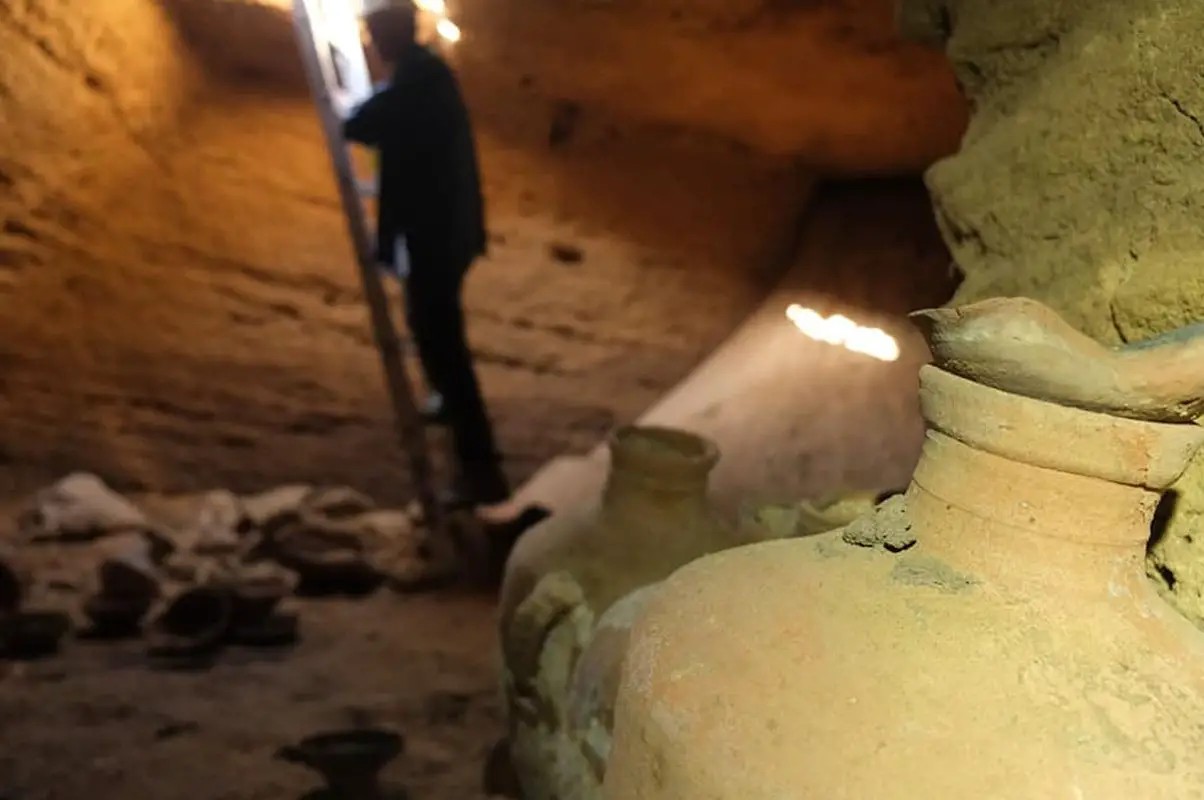A mechanical digger has accidently revealed an ancient burial cave in Israel from the Late Bronze Age.
The discovery was made during construction works in the Palmachim Beach National Park by the Israel Nature and Parks Authority.
Upon notifying the Israel Antiquity Authority (IAA), a team of archaeologists were mobilised to the site, revealing a “time-capsule” of artefacts that have been ritually deposited 3,300 years ago.
The rock hewn cave contains several intact pottery vessels and bronze artefacts to serve the deceased into the afterlife.
The vessels include deep and shallow bowls, footed chalices and storage jars, some of which have been imported from the Lebanese coast, and smaller vessels such as jugs and juglets imported from Tyre, Sidon and ports along the Lebanese and Israeli coast.

“The finds in the cave date to the thirteenth century BC (Late Bronze Age IIB)” says Dr. Eli Yannai from the IAA. “In this period, in the long reign of the Nineteenth Egyptian Dynasty, Pharaoh Rameses II, the Egyptian Empire controlled Canaan, and the Egyptian administration provided secure conditions for extensive international trade”.
Preliminary studies have also found lamps and bronze arrowheads or spearheads, and human remains in two rectangular plots in the corner of the cave.
The cave has been resealed and is under guard while a plan for its excavation is being formulated, however, before the arrival of IAA archaeologists some of the burial items were looted which is now being investigated by the authorities.
Dr Yannai added: “The fact that the cave was sealed, and not looted in later periods, will allow us the employ the modern scientific methods available today, to retrieve much information from the artefacts and from the residues extant on the vessels, for example, organic remains that are not visible to the naked eye. The cave may furnish a complete picture of the Late Bronze Age funerary customs.”
Header Image Credit : Israel Antiquity Authority





